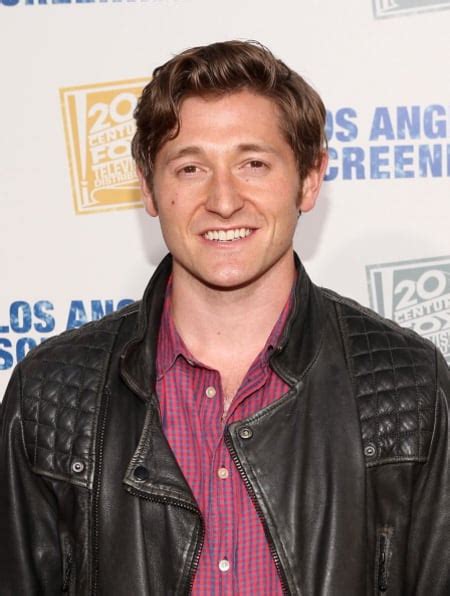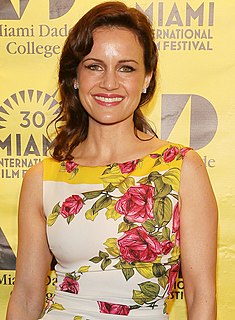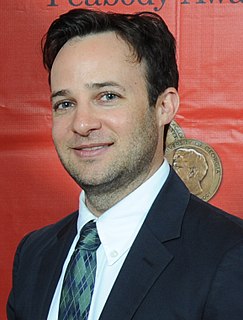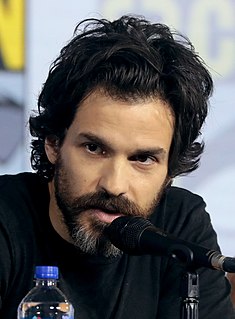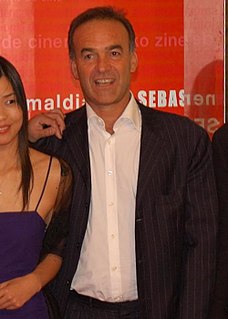A Quote by Lucas Neff
There's sort of a very symbiotic thing that happens on good TV shows with great writers, which is that they start to sort of embrace who the actors are and try to make the roles more specific to what they bring and what they can do.
Related Quotes
On these matters of specific fact, like is the mushroom an extraterrestrial and that sort of thing, I haven't the faintest idea. The mushroom itself is such a mercurial, elusive, Zen sort of personality that I never believe a word it says. I simply entertain its notions and try and sort through them, and I found that to be the most enriching approach to it.
You know so many documentaries now are very carefully scripted before you start, and then people are sort of put in chairs which are beautifully lit, and they tell their stories and you do that with another 10 people and you then construct a story from what they say. You do a sort of paper thing, and then you put some images in-between, and that's your film. And that's so not what I think is a good documentary. It can be so much more than that, it should be much more of an adventure and much more uncertain... like real things are.
I know that actors and actresses have a great reputation for being very, very selfish, and in some cases, that's very true. But in the theater I find it doesn't help you to be selfish. You sort of have to be selfless in the theater, and the more selfless you are - that doesn't mean don't take care of yourself - but the more you sort of surrender to the work, I find, the better the work is. That's just my experience.
